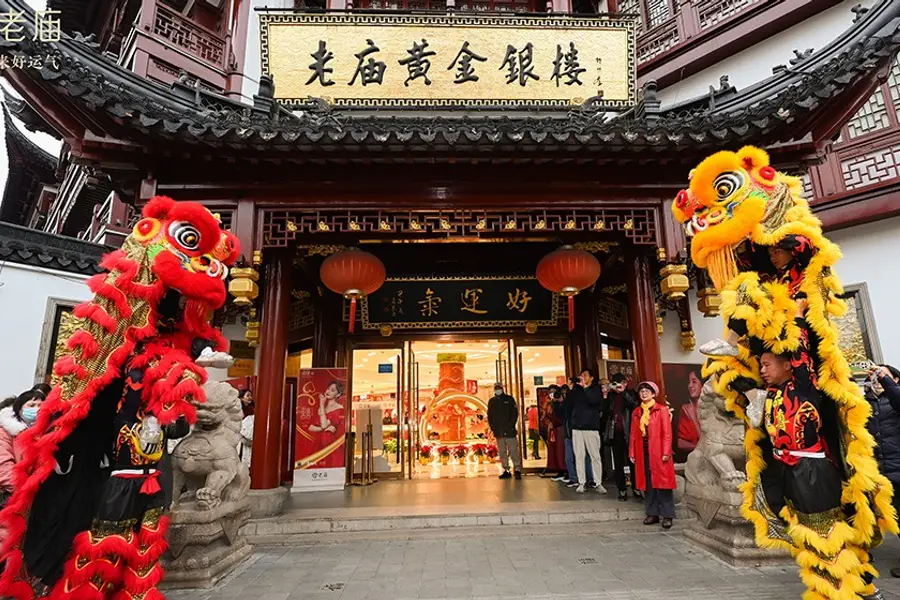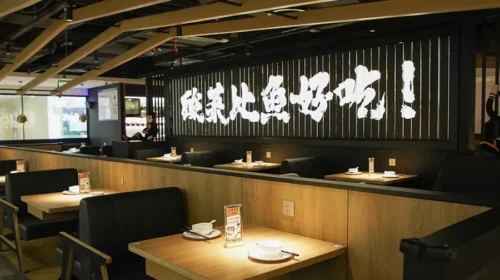Fosun jewelry unit mines gold from new investors even as its profit shrinks

A Bank of China unit agreed to pump 400 million yuan into Shanghai Yuyuan Jewelry Fashion Group, becoming one of the company’s latest new investors
Key Takeaways:
- Bank of China Financial Asset Investment will pay 400 million yuan for 3.6% of Fosun International’s Shanghai Yuyuan Jewelry Fashion Group
- The investment follows two rounds of large-scale new investment in the jeweler late last year, even as its profit fell
By Warren Yang
Attracting fresh capital for a business that’s losing its luster isn’t easy. But conglomerate Fosun International’s (0656.HK) jewelry subsidiary has done just that by lining up an army of investors to shore up its business that doesn’t look so shiny at the moment.
Last Friday, Fosun said that Bank of China Financial Asset Investment agreed to buy 400 million yuan ($55.7 million) worth of new shares in Shanghai Yuyuan Jewelry Fashion Group, giving it a 3.6% stake in the company. The jeweler owns the Lao Miao brand of shops and is part of Fosun’s separately listed Shanghai Yuyuan Tourist Mart (Group) Co. Ltd. (600655.SH), whose operations including shops in Shanghai’s historical Yuyuan Garden.
The share sale follows two earlier fundraising rounds late last year. In November, three dozen investors — mostly individuals — agreed to invest a collective 770 million yuan in the jeweler by buying shares in a wholly owned vehicle of Yuyuan Tourist Mart. That investment gave them an aggregate indirect stake of about 8% in the jeweler. Then, the following month, Bank of Communications Financial Asset Investment, an investment arm of another major Chinese bank, agreed to chip in 600 million yuan for 5.6% of the jeweler.
All said, Yuyuan Tourist Mart has raised a total of nearly 1.8 billion yuan from almost 40 investors for its jewelry business since last November. That’s quite a substantial sum, equaling more than 30% of Yuyuan Tourist Mart’s cash holdings at the end of last year.
What makes this undertaking even more impressive is that Yuyuan Tourist Mart’s own prospects aren’t particularly bright right now amid generally weak consumer sentiment in China, especially toward nonessential items like glittery accessories.
The listed company’s revenue plunged nearly 50% in the first quarter year-on-year to 8.78 billion yuan, while its profit for the period fell by an even greater 71% to 51.8 million yuan, according to its latest financial report filed in late April. Yuyuan Tourist Mart’s profit already plunged 94% last year, which Fosun blamed on sluggishness in the “overall domestic consumer market.”
Sharp appreciation in prices of gold and other precious metals in the past year isn’t helping for the unlisted Shanghai Yuyuan Jewelry Fashion Group either, scaring off China’s increasingly cost-conscious buyers. Last year, the jeweler’s net profit fell about 10% to 714 million as its sales dropped, according to Fosun’s Friday disclosure and its latest annual report.
That sluggishness comes as many jewelers across China report falling sales and profits. Among them, Hong Kong-based Luk Fook (0590.HK) announced this week that its profit fell by 40% in its latest fiscal year that ended in March.
The drags on jewelry companies’ profits may not go away soon in the current economic environment in China, although Beijing is trying hard to convince consumers to open their wallets. When sales are sagging, companies often turn to cost cutting to shore up their finances. That appears to be a major objective for Yuyuan Tourist Mart, one of Fosun’s four largest subsidiaries and the flagship for the group’s “happiness” segment.
Last year, Yuyuan Tourist Mart stepped up divestment of its noncore assets. It sold Kabushiki Kaisha Shinsetsu, a Japanese operator of hotels and restaurants, as well as property projects like Shanghai Zhenru Starshine Plaza. Building on these moves, the company will continue to focus on operation streamlining and asset-light collaborations with key partners this year, according to Fosun.
Slimming down
Slimming down is also an ongoing theme for Fosun, the main investment arm of billionaire Guo Guangchang’s business empire, which is only now moving on from its own recent debt crisis. That crisis peaked a few years ago when a deterioration of Fosun’s cash flow during the pandemic jeopardized its ability to pay debt that was coming due.
To avoid a default, it started scrambling to sell assets it purchased during a global buying spree in the 2010s. Most recently, in May, it sold real estate assets in Portugal to the country’s central bank. As part of its broader overhaul, Fosun has consolidated its remaining assets around four core subsidiaries, including Yuyuan Tourist Mart.
Fundraising seems to be another focus area lately for Yuyuan Tourist Mart. The company relies on debt quite heavily to fund its operations, with its total liabilities amounting to well over 60% of total assets, which limits its ability to increase borrowing. That means financing by selling shares makes more sense for the company — and indeed, it is considering a second listing in Hong Kong to raise the equivalent of $300 million, Bloomberg reported in January.
Such a move would make Yuyuan Tourist Mart the latest company listed on China’s domestic A-share markets in Shanghai and Shenzhen to make a second listing in Hong Kong. That movement culminated with the $4 billion Hong Kong listing last month of leading electric vehicle (EV) battery maker CATL, which was already listed in Shenzhen.
Of course, whether Yuyuan Tourist Mart can pull off a Hong Kong IPO is a big question mark now, given the company’s recent dismal results, which haven’t impressed investors in its Shanghai-listed stock. The company’s shares have eked out a 3% gain in the past year, underperforming the SSE Composite Index, which rose some 12% over that time.
But the recent series of equity sales by its jewelry arm does show that there’s a decent amount of interest in Yuyuan Tourist Mart, or at least in its jewelry business, among big-name investors. The latest deal values Shanghai Yuyuan Jewelry Fashion Group at about 11 billion yuan, or about 16 times its 2024 profit. That looks somewhat reasonable, putting it between the higher price-to-earnings (P/E) ratio of 23 for Hong Kong jewelry giant Chow Tai Fook (1929.HK) and the lower 8 for rival Chow Sang Sang (0116.HK).
Such a multiple still shows that investors are relatively optimistic about Fosun’s jewelry business, even if they are less enamored with its other retail operations. The real challenge, now, will be for the jeweler to deliver results that live up to the new investors’ expectations.
To subscribe to Bamboo Works weekly free newsletter, click here





